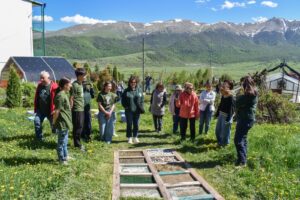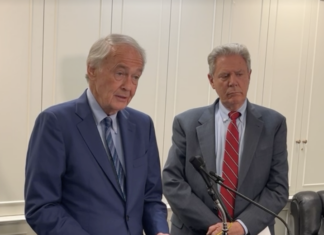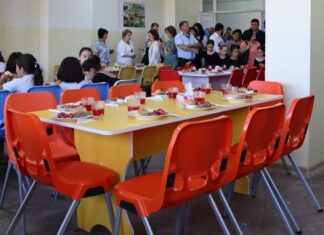By Aram Arkun
Mirror-Spectator Staff
WATERTOWN – Anthony J. Barsamian has become a prominent figure representing Armenian-Americans today through his work with the Armenian Assembly of America. As a new co-chairman of its board of trustees, he is leading efforts to revitalize the Assembly. As an active member of the Armenian Church, he also has just become the first member of this church to be elected as head of the Massachusetts Council of Churches (see accompanying article on page 9).
Barsamian has always been proud of his background. He said, “Members of my family came here to the US both before and after the Armenian Genocide. We are from the Worcester community. We lived on Laurel Street, which is where the first Armenian church in the US was located. My father worked in one of the wire mill factories. I feel that I understand the community in many aspects from its origins, though of course these took place at an earlier period, and how Armenians had to deal with many hardships when they first came to the US.”
After graduating from the University of Massachusetts at Amherst, Barsamian went to Suffolk Law School in Boston. He began working at a law firm after graduating, but soon started his own firm, now called Hutchings Barsamian Mandelcorn and Robinson, where he is managing partner, with 10 attorneys in the firm and two locations.
Barsamian’s long history of involvement with the Assembly started after his graduation from law school. His working in George Keverian’s office during law school led to being asked to help with President Levon Ter-Petrosian of Armenia’s visit to Boston in 1994. In the process, Barsamian got to know Robert Aram Kaloosdian, one of the founding members of the Assembly, and Carolyn G. Mugar, then (and now) its president. He later became a member of the Assembly board of directors, in the early 2000s, and from 2004 to 2006 was the chairman of that board (the board of directors was merged with the board of trustees at the end of his term). Barsamian recalled that in those years the Assembly had expanded, and had a large staff in Washington DC, Los Angeles and Armenia. Among its accomplishments during those years was to help regularize US-Armenian economic relations. An act of Congress, signed into law by the US president, granted Armenia normal trade partner status in 2004 and lowered trade duties on Armenian goods entering the US.







